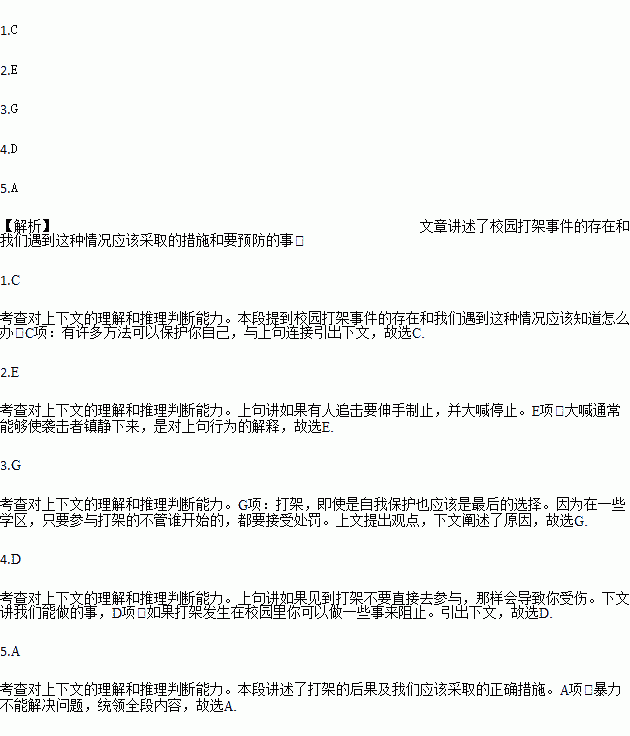题目内容
Fights at school have become an increasingly familiar sight for children. You should know what to do if you are in a fight, or see a fight at school. 1.
You should try to get away if you can. If you know someone is coming up behind you to attack, turn toward the person with your hands up in front of your body and loudly say “stop” before walking away. 2. If the person doesn’t stop, cry for help by calling out the name of a teacher whose classroom is nearby.
3. In some school districts, everyone involved in a fight can be punished, regardless of who started it.
What should you do if you sec a fight? You mustn’t jump in to break up a fight or help a friend. If you get involved in a fight, you become exposed to injuries and punishment. 4. It’s a good choice to find an adult or call the police. Shout loudly to break up the fight or warn that an adult is coming.
5. It only provides temporary relief for the attacker and causes more trouble. If you are concerned about fights at school, the best thing you can do is talk to an adult who will listen and take action.
A. Violence never solves problems.
B. You should support one aide for good reason.
C. There’re a few ways for you to defend yourself.
D. You can do something if a fight breaks out at school.
E. Loud voice can usually make the attacker calm down.
F. The attacker usually stops when you’re running fast.
G. Fighting, even in self-defense, should always be the last choice.
 阅读快车系列答案
阅读快车系列答案
